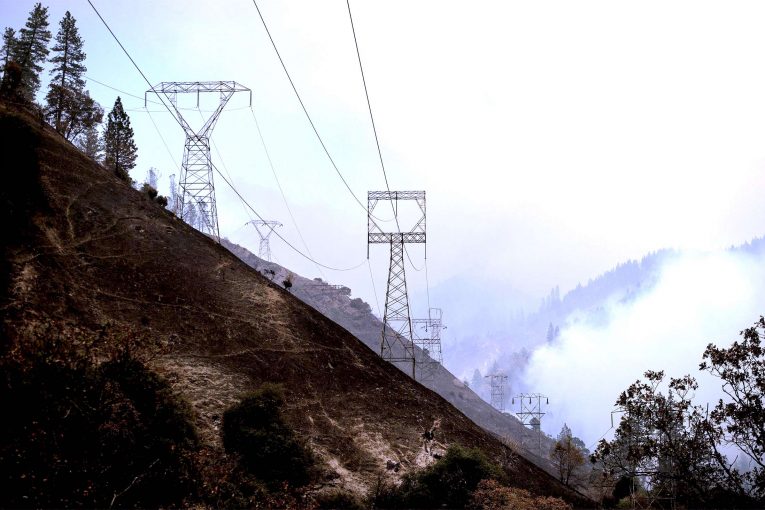

By Jack Galloway
CALIFORNIA— Pacific Gas & Electric Company (PG&E) warns of more power shut offs this week to reduce the risk of wildfire. In the face of ongoing issues with the company, a number of Californians are voicing their concerns about the continued controversy and apparent mismanagement surrounding PG&E.
PG&E is no stranger to scandals. In the 1950s and 60s PG&E misled and lied to customers about groundwater contamination in Hinkley, CA, which had devastating repercussions on community health.
The coverup was exposed by activist Erin Brockovich and widely publicized by the hit film bearing her name starring Julia Roberts. More recently, PG&E has been in court surrounding the 2018 Camp Fire (the most destructive wildfire in California history) which was caused in part by faulty PG&E power lines.
These incidents raise the question: should PG&E continue to be privately owned? Should a company that provides an essential service such as electricity have a profit motive?

Currently, PG&E is a privately owned company, with a variety of shareholders, including the Vanguard group and Black Rock, two of the largest asset managers in the world. These powerful shareholders incentivize PG&E to focus on increasing profit margins, pressuring the company to raise rates; this for-profit mindset has contributed to PG&E’s appearances in court, fighting against proper restitution for fire victims.
As the effects of climate change worsen, safe, reliable, and affordable gas and electricity will become more important. Climate change will lead to more severe drought conditions in California, and without improving energy infrastructure, sparks from faulty power lines will cause increasingly destructive wildfires. These wildfires will displace thousands of Californians, and have disastrous economic effects for our state. In the status quo, we are already beginning to face worsening fire seasons, red skies, and hazardous AQIs. With PG&E controlling much of the Golden State’s power infrastructure, many are proposing converting PG&E to a publicly owned utility.
Public utilities are not rare in the United States; one in seven Americans is served by not-for-profit, community-owned utilities. Public utility customers pay 11% less for electricity than people served by private utilities.
Additionally, public utilities are more reliable, with customers only being without power an average of 62 minutes a year, compared to 152 minutes for private utilities. 40% of the electricity public utility companies produce is renewable, far above the American average of 12%. This performance can be attributed to the fact that public utilities are governed by a board of directors accountable to the people they are serving.
On the whole, they respond more to public pressure to decarbonize and keep rates low. These companies are largely driven by the people they serve rather than the desire for profit. Thus, a government/community takeover of PG&E could help solve a plethora of the issues within the country, mitigating the economic and health effects of climate change for millions of Californians.
The United States has a long and conflicting relationship over public/private industry; FDR nationalized military production and other industries during the Great Depression and WW2, while the Reagan administration deregulated most industries in the United States.
Although the question of whether to publicize PG&E splits ideological lines, one thing is clear: the way PG&E operates in the status quo is harmful for the majority of Californians, negatively impacting both our physical health and our economic security.

